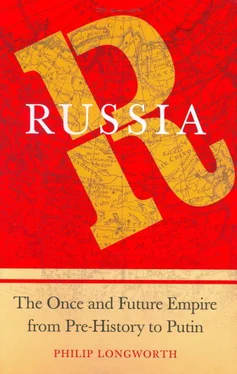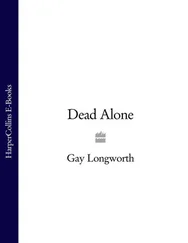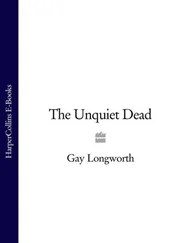Yeltsin’s economic policies were by now being characterized as ‘a crime against national security’ by anti-Communist newspapers which had once supported him; according to an opinion poll, the President was now distrusted by nine Russians out of ten. 26He tried desperately to deflect his regime’s unpopularity by dismissing one prime minister after another. Stepashin, who replaced Primakov in May 1999, was himself replaced by Vladimir Putin in August. Meanwhile the President played the patriot and defender of Orthodoxy on the international stage. He gave moral support to the Orthodox Serbs in the former Yugoslavia, and ordered a small Russian force, stationed in Bosnia as part of the international peace-keeping operation there, to seize Sarajevo airport, enraging NATO’s American commander. The gesture did not affect the outcome in Bosnia, however. 27Yeltsin also gave support to Serbia in its repression of the Kosovo Albanians, following nationalist (KKL) threats to the Serb minority in Kosovo, but Washington saw the Serbs rather than the Albanian nationalists as guilty and bombed Serbia into submission. He showed concern, too, for Russians suffering discrimination in the Baltic states, but thinly veiled threats from Western agencies that discrimination against minorities might effect these states’ applications to join NATO and the EU were more effective. Yeltsin’s bluster could not disguise his lack of clout on the international stage.
His concessions over the Kurile Islands, which had long been a bone of contention with Japan, at least improved relations with that country, and he also contributed to better relations with China, which had been managing its economic transition so much more skilfully than Russia had done. In October 1999 he was constrained to approve Putin’s decision to send Russian forces back into Chechnya. The soft line there which Berezovskii had advocated had not been effective. The bandit gangs were out of control, and Islamic fundamentalism was gaining strength. Early in August, Khattab and Shamil Basaev had led a group of armed fundamentalists into neighbouring Dagestan. Russian military operations in Dagestan turned out to be much more succesful than they had been in Chechnya itself in the earlier war — partly, perhaps, because the Americans, alarmed now about the Muslim fundamentalism in the region, offered help to disrupt the insurgents’ communications. However, the principal reason was that the Dagestanis, who had voted for the Communists in the recent elections, disliked fundamentalism. 28
But by now even Yeltsin understood that he had run out of options. At the end of the year he suddenly announced that he was stepping down. Elections for a new president would be held in March 2000. In the meanwhile, in accordance with the constitution, the Prime Minister would act as caretaker. Before he stepped down, however, Yeltsin elicited an assurance from Putin that he would not be prosecuted. Putin moved into office on 1 January 2000.
* * *
Although most of the Western press regarded Putin with suspicion, characterizing him as authoritarian, and repeatedly reminding the public of his KGB past, his popularity rating among Russians climbed steadily After a decade of misery and disorder, the prospect of firm government now seemed very welcome. Now that opinion had turned against terrorism, the new war in Chechnya was popular too. Even the KGB — now called the Federal Security Service (FSB) — was coming to be well regarded, thanks partly to a public-relations campaign presenting it as Russia’s shield against its foreign enemies. One of Putin’s first presidential actions was to restore Yuri Andropov’s bust to prominence at FSB headquarters — a shrewd move, since Andropov, himself a former KGB chief, had been the godfather of radical reform and also represented the good, stable times before the collapse. In March 2000 Putin was duly elected.
A greater contrast with his predecessor could hardly be imagined. Putin was as slight and fit as Yeltsin was burly and ailing; as collected and deliberate as Yeltsin was erratic and unbridled; as discreet and measured as Yeltsin was ebullient and greedy — and a good deal more knowledgeable about the wider world. The article he published on the government’s web site on the eve of becoming interim president presented a realistic summation of Russia’s position and a well-judged statement of his priorities. Nor did he fail to project a personal image to the public. In an autobiography by interview he spoke about having been ‘a hooligan’ at school, and of his passions for the martial arts and for books and films about spies. He also spoke frankly about his previous career, not concealing an acquaintance with Boris Berezovskii and saying one or two pleasant things about Yeltsin while firmly distancing himself from both. And what he said in public struck an immediate chord with the people. ‘We are a rich country of poor people,’ he told them. He spoke of his ‘pride in the fatherland’, and told them straightforwardly that ‘for Russia a strong state… is… the guarantee of order, the initiator and main driving force for change.’ 29
Although realistic about his country’s capabilities and the strengths of its adversaries, he contrived to take a positive line in foreign affairs. Claiming that ‘a power with a geopolitical position like Russia has national interests everywhere’, he reasserted Russia’s claims in the Caspian, took a tougher line on Ukrainian and Georgian debt, adopted a bolder position in Transcaucasia and Central Asia, worked towards a ‘strategic partnership’ with China and improved relations with Iran and India. But he also tried to reach an accommodation with NATO, 30and after 11 September 2001 he co-operated with the USA over terrorism, while preserving a sphere for Russia’s ally in Afghanistan, the Northern Alliance.
At home, Putin emphasized the importance of the rule of law, encouraged property-ownership, sponsored legislation facilitating the purchase and sale of land, but set his face against what he saw as the abuse of press freedom. When the media magnate Vladimir Gusinskii refused to suppress lampoons of Putin appearing in his papers, he was pursued; when he fled to Greece, extradition proceeding were instituted on the grounds that he had committed fraud. The President, Russia’s representative figure, was not considered to be a suitable subject for mockery in Russia’s present sensitive state.
In 2001, 28 per cent of Russia’s budget had to be earmarked for debt-repayment. Recovery from the disastrous Yeltsin decade was slow, but at least it had begun. In 2002 both GNP and the balance-of-payments situation improved. Foreign investment was also rising and 700 American companies were doing business in Russia, though its best trading partners were Germany, India, Japan, which consumed enormous quantities of Russian-caught fish, and Cyprus. However, the country’s demographic decline was giving rise to concern. The population had fallen to 143 million and was still in decline. Moreover, part of the decline was associated with a ‘brain drain’. This was doubly damaging because it lost the country much expertise as well as energetic people in their prime.
There were periodic reminders that Russia had lost its superpower status. The Vatican decided the time was ripe to take a higher profile in Russia, and four new dioceses were created there; Ukraine defied its larger neighbour by declaring Russian to be a minority language, even though at least half its subjects spoke it; 31and Russia’s isolation in Europe increased with the enlargement of both NATO and the European Union eastward.
On coming to power, Putin had emphasized the importance of the state as a guarantor of order and a driving force for change, and he made the defence of the state his first priority in office. The measures he took to this end were certainly authoritarian, but they were not directed towards a restoration of an all-encompassing state sector nor to the suppression of democracy as some suggested. His pursuit of billionaire oligarchs like Vladimir Gusinskii, a former theatre director, of Boris Berezovskii, once a mathematician at the Academy of Sciences, and Mikhail Khodorkovskii, chemistry graduate and former Komsomol activist, suggested that they might have been. Certainly these people and their like were highly unpopular, and widely thought to have stolen public property. But while their unpopularity facilitated Putin’s attempt to bridle them, it did not occasion it. The fundamental reason was that these plutocrats threatened the state.
Читать дальше





![Stephan Orth - Behind Putin's Curtain - Friendships and Misadventures Inside Russia [aka Couchsurfing in Russia]](/books/415210/stephan-orth-behind-putin-s-curtain-friendships-a-thumb.webp)





